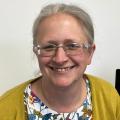
HOSPITAL bosses were asked to spell out what Inverclyde Royal will look like in the future as a public meeting heard concerns over health service cuts.
Members of the public had their first chance to put bosses on the spot over plans to stop treating the most serious trauma cases locally and move emergency orthopaedic surgery to Paisley.
At the Larkfield Braeside and Branchton Community Council meeting people highlighted their concern over the new set-up, citing the already overstretched ambulance service, the decision to overlook IRH and concerns about travel due to congestion on the A8 and M8.
But senior consultants and health bosses from hospital spoke out in favour of the changes - which will impact on around 900 patients a year - and insisted they would save lives.
Speaking at the meeting, Councillor Lynne Quinn summed up the mood as she asked: "I guess what we want to know is once you are finished with all these different reviews, when they are finished, what is the IRH going to look like in the end?"
A delegation from Inverclyde Royal Hospital - including orthopaedic consultant Andrew Chappell and Dave Raeside, chief of medicine - came to the community council meeting amid a background of reviews NHS Greater Glasgow and Clyde are carrying out into services in Inverclyde.
The intensive care unit at IRH is under threat, the physical rehabilitation unit has closed temporarily and is under review with patients looked after in the stroke unit.
The crisis-hit GP out of hours service is also under the microscope and sexual health services were recently changed, with Inverclyde losing consultant-led clinics.
Clinical director Sharrif Hazarika told the meeting that the trauma review was government-led to create a West of Scotland trauma centre.
Under the new system the most serious cases will go direct to the Queen Elizabeth University Hospital in Glasgow, with the rest taken to Paisley's RAH.
Inverclyde Royal will be a local emergency hospital in future under a new tier system of hospitals.
It will be used to carry out elective surgery like hip replacements, to reduce waiting lists.
Defending the trauma shake-up, Mr Hazarika said: "It is about increasing the chances of survival.
"All studies from around the world show that that this saves lives.
"It is about having specialised care."
But Greenock man Stephen Regan asked: "What reason did they have for choosing the RAH in Paisley as a trauma centre and not the IRH?"
He added: "We are also concerned about the ambulance service, which is already under strain."
Councillor Innes Nelson was another to raise concerns about the ambulance service.
He added: "There are two ambulances on at any one time and sometimes they are sent to other places and there are Saturday nights where there is no cover at all in Inverclyde.
"This is very concerning."
Health campaigner Martin McCluskey, who recently stood as Labour's general election candidate, also aired his concerns. He said: "This is the first time we have had this level of detail from the board and I would like to thank the representatives for that.
"I am concerned that this will increase the pressure on the ambulance service.
"I would also like to know what the decision process was in choosing the RAH."
Mr Hazarika told the meeting that the RAH had double the capacity and added that the Scottish Ambulance was involved in discussions with the government about the resources they would need under the new look care model.
Orthopaedic consultant and local resident Mr Chappell spoke out in defence of the changes.
He said: "I live in Greenock. I am not from Glasgow or somewhere else. This has an impact on me as well. My son lives here, my family are here. We have been involved in this decision.
"This is good for Inverclyde Royal. I was part of the campaign to stop the cuts with the A&E because it was one sided. This is not the same. It is going two ways. We are going to get elective surgery at the IRH and investment. This is not about saving money. There will be more consultants here, rather than less.
"It affects 14 patients a week and increases survival rates."
The difficulty in recruiting medical staff to work at IRH has recently been raised by bosses in the discussion around intensive care at IRH and chief of medicine Mr Raeside touched on the 'challenges' involved.
He said: "It is a challenge but there are people who want to come and work here.
"But undoubtedly an unforeseen consequence of the Queen Elizabeth Hospital is it is a magnet for doctors."
Health bosses have stressed that no decisions have been made on departments like the ICU yet and say that there would be full consultation on any changes.



Comments: Our rules
We want our comments to be a lively and valuable part of our community - a place where readers can debate and engage with the most important local issues. The ability to comment on our stories is a privilege, not a right, however, and that privilege may be withdrawn if it is abused or misused.
Please report any comments that break our rules.
Read the rules hereLast Updated:
Report this comment Cancel